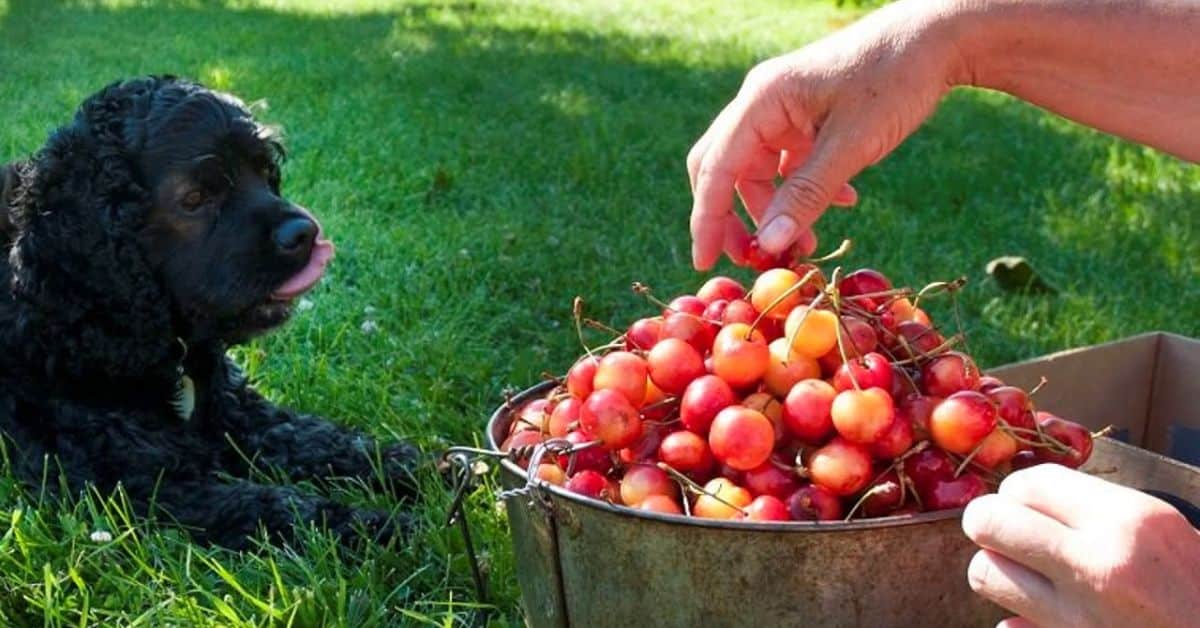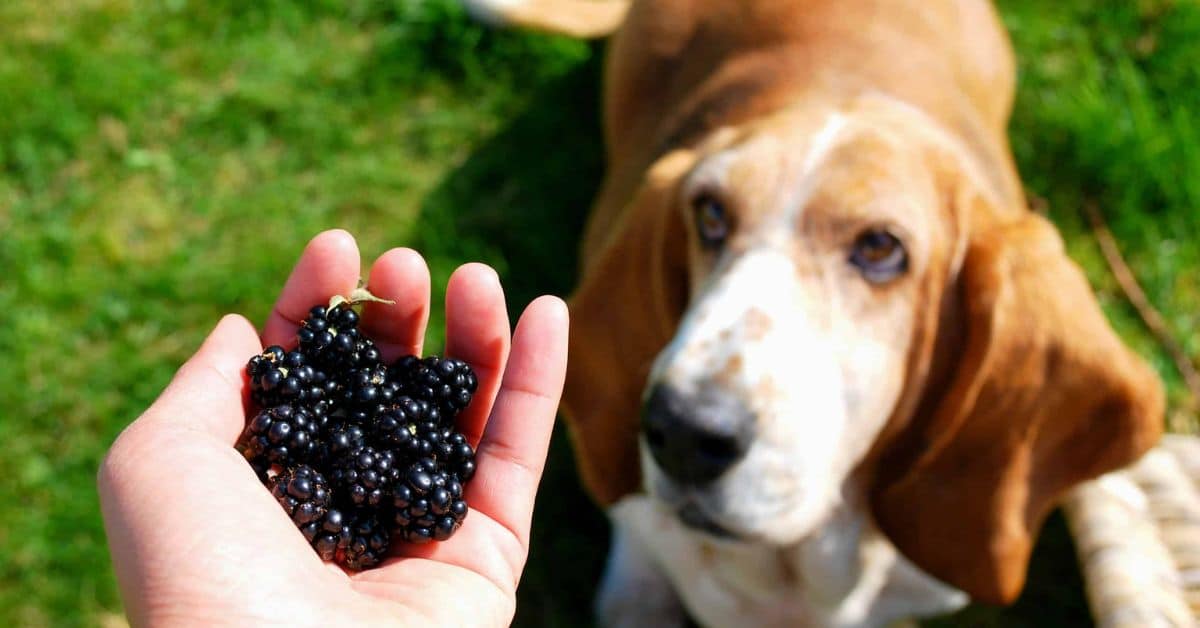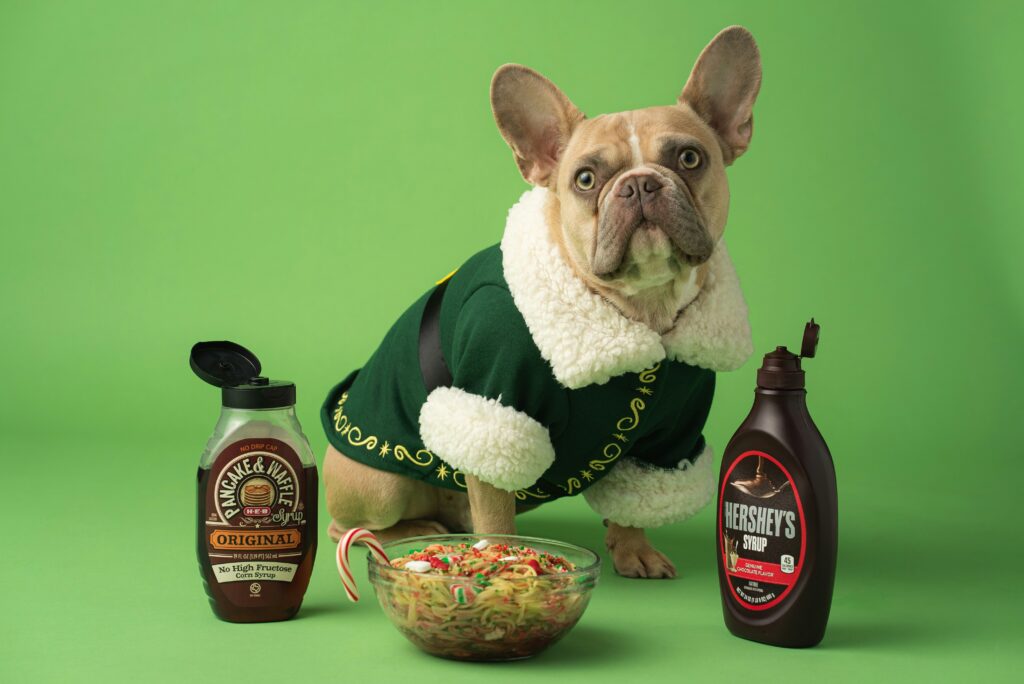The question is Can Dog Eat Cherry? While the flesh of the cherry itself may not be inherently toxic, the pits stems, and leaves of cherries contain a compound called cyanogenic glycoside, which breaks down into cyanide when ingested.
Can Dog Eat Cherry?
Cyanide poisoning can cause serious symptoms like dilated pupils, upset stomach, difficulty breathing, and even death in large amounts. Even a single cherry pit can pose a choking hazard or digestive blockage. Maraschino cherries, while pit-free, are loaded with sugar, which can lead to digestive issues and weight gain.
Fresh cherries, minus the pits of course, can be a healthy snack for dogs in moderation. However, it’s important to be aware of the potential dangers and consult with your veterinarian before introducing any new human foods to your dog’s diet.
What to Do if Your Dog Swallows a Whole Cherry
If your dog accidentally swallows a whole cherry, there’s no need to panic. A single cherry pit is unlikely to cause cyanide poisoning. However, it’s essential to be vigilant for any signs of intestinal blockage, which may include vomiting, decreased appetite, constipation, and decreased fecal production.
Keep in mind that smaller dogs are more susceptible to intestinal blockages from small pits. If your dog consumes multiple cherries without pits, watch out for symptoms of cyanide poisoning, such as labored breathing, bright red gums, and dilated pupils.
In such cases, it’s advisable to contact your veterinarian promptly. Remember that maraschino cherries, although pit-free, are not a suitable dog treat due to their high sugar content. Always exercise caution when offering unprocessed cherries to your furry friend, and keep unpitted cherries out of reach.
Is It Safe for Dogs to Have Cherries?
Yes, it is safe for dogs to have cherries, but with some important caveats. Cherries are a delicious fruit, and they offer health benefits for humans due to their natural sugar content and vitamin C. However, when it comes to our furry friends, we need to be cautious.
Here’s what you should know:
- Cherry Pits: The pits (or stones) of cherries contain cyanide compounds. While a single cherry pit is unlikely to cause harm, multiple pits or prolonged exposure can lead to cyanide toxicity. Dogs may accidentally swallow pits, especially if they eat cherries without removing the pits first.
- Symptoms of Cyanide Poisoning: Keep an eye out for signs of cyanide poisoning, which include difficulty breathing, dilated pupils, and upset stomach. If your dog exhibits any of these symptoms after consuming cherries, seek veterinary attention promptly.
- Fresh Cherries vs. Maraschino Cherries: Fresh cherries are a better option than maraschino cherries. Maraschino cherries are often soaked in sugary syrup and contain artificial flavoring. Avoid giving these to your dog due to their high sugar content.
- Cherries Without Pits: If you want to share cherries with your dog, remove the pits first. Offer small amounts of fresh, pitted cherries as an occasional treat. Remember that moderation is key.
- Frozen Cherries: Frozen cherries can be a refreshing treat for dogs during hot weather. Just ensure they are pitted and free from any additives.
- Cherry Dog Treats: Some commercial dog treats contain cherries. These are usually safe because they use processed cherries without pits. Always check the ingredients and follow the recommended serving size.
- Other Stone Fruits: Cherries belong to the stone fruit family, along with peaches, plums, and apricots. The same precautions apply to these fruits.
Remember that while cherries can be a healthy snack for humans, they should be an occasional treat for dogs. Always prioritize dog-safe fruits and maintain a balanced diet for your furry companion.
Why Are Cherries Bad for Dogs?
While the cherry flesh itself may seem like a tasty treat, several parts of the cherry pose dangers to dogs. The pits stems, and leaves contain cyanide, a poisonous compound that can cause serious symptoms like dilated pupils, upset stomach, difficulty breathing, and even death in large amounts.
Even a single cherry pit can be a choking hazard or cause a blockage in a dog’s digestive tract. Maraschino cherries, on the other hand, are loaded with sugar, which can lead to digestive issues and weight gain. Overall, it’s best to avoid giving cherries to your dog and stick to dog-safe fruits for a healthy and worry-free treat.
Can Dogs Have Cherries of Any Kind?
While cherries are delicious fruits and a healthy snack for humans, they pose significant risks for dogs. Maraschino cherries and raw cherries, particularly those with pits, can be harmful due to their sugar content and potential cyanide toxicity.
The pits, leaves, and stems contain cyanogenic compounds, which can lead to symptoms of cyanide poisoning such as dilated pupils, difficulty breathing, and an abnormal heart rate. Even a single cherry pit can cause digestive tract issues or toxic reactions in dogs. Excess sugar from fresh cherries or cherry pie can lead to digestive upset and other long-term health problems.
If a dog ingests cherries, especially those with pits, it’s crucial to seek veterinary attention immediately to avoid fatal poisoning. Pet parents should opt for dog-safe fruit and foods, ensuring their furry friends maintain a balanced diet and avoid potential health conditions. Always be cautious with cherries to prevent accidental ingestion and associated risks.
What to Do if Your Dog Eats a Whole Cherry
If your dog accidentally swallows a whole cherry, there’s no need to panic. A single cherry pit will not cause cyanide poisoning. However, it’s essential to be vigilant for any signs of intestinal blockage, which may include vomiting, decreased appetite, constipation, and decreased fecal production. Here’s what you should do:

- Monitor Your Dog: Keep an eye on your furry friend. If you suspect they’ve ingested cherries, observe their behavior closely.
- Watch for Symptoms: Look out for any unusual symptoms, such as bright red mucous membranes, hyperventilation, abnormal heart rate, seizures, convulsions, tremors, or collapse. These signs could indicate cherry poisoning.
- Contact Your Veterinarian: If your dog exhibits any concerning symptoms, seek veterinary attention promptly. Inform the vet about the cherry ingestion and provide details on the quantity consumed and the time elapsed.
- Remove Pits: If you plan to share cherries with your dog, always remove the pits first. Pitted cherries are safer for dogs.
Remember that while cherries can be a healthy snack for humans, they should be an occasional treat for dogs. Always prioritize dog-safe fruits and maintain a balanced diet for your furry companion.
Are There Safer Alternatives?
Yes, there are safer alternatives to cherries for dogs. Instead of maraschino cherries, raw cherries, or cherry pie, which can lead to symptoms of cyanide poisoning and upset stomachs, consider dog-safe fruits like blueberries, apples (without seeds), and bananas.
These fruits are healthy snacks with natural sugars, offering health benefits without the risks associated with cherry pits, leaves of cherries, or the cherry tree. While cherries provide Vitamin C and other nutrients, the danger of cherries, especially with pits, outweighs their benefits for dogs. Opt for fruits with lower sugar content to avoid digestive issues and support a balanced diet. Safe fruits like watermelon, strawberries, and peaches (without pits) are excellent treats for dogs and help maintain skin health and overall well-being.
Always avoid foods with artificial flavoring and excessive sugar content, and consult with a veterinarian to ensure your pet’s diet supports healthy aging and prevents long-term health problems.
Do Cherries Have Any Benefits For Dogs?
Cherries for dogs are a mixed bag. While the flesh contains some potential benefits like vitamins, fiber, and antioxidants, the risks outweigh them. Here’s why:
- Danger Zones: Cherry pits, stems, and leaves contain cyanide, toxic to dogs. Even a single pit can release cyanide upon chewing or cause choking/blockage.
- Sugar Issues: Maraschino cherries, though pit-free, are loaded with sugar, leading to digestive problems and weight gain.
- Limited Benefits: The amount of vitamins and antioxidants a dog would get from a safe serving of cherries is minimal compared to a balanced diet.
Safer Alternatives:
Stick to dog-approved fruits like blueberries or apples (minus the cores). These offer similar vitamins and fiber without the cherry’s risks.
How Many Cherries Are Toxic For Dogs?
Cherries can be toxic to dogs due to their pits, stems, and leaves. The pit contains amygdalin, which converts into cyanide when digested in a dog’s body. While one or two cherries (flesh only) are unlikely to cause harm, it’s essential to avoid the pit.

If your dog accidentally swallows a whole cherry, don’t panic—a single cherry pit won’t lead to cyanide poisoning. However, watch for symptoms of intestinal blockage, such as vomiting, decreased appetite, constipation, and decreased fecal production.
Smaller dogs are more susceptible to blockages from small pits. Types of Dog Food If your dog consumes multiple cherries without pits, look out for signs of cyanide poisoning, including labored breathing, bright red gums, and dilated pupils. In such cases, consult your veterinarian promptly.
Conclusion
While cherries are delicious and nutritious for humans, they pose significant risks to dogs due to their pits, high sugar content, and potential cyanide toxicity. Safer alternatives such as blueberries, apples, and bananas offer health benefits without these dangers.
Pet parents should prioritize dog-safe fruits to ensure a balanced diet and avoid digestive issues, poisoning, or other health conditions. Always consult with a veterinarian before introducing new foods into your dog is diet to support their overall health and well-being. By making informed choices, you can keep your furry friend happy and healthy.
For More Information
We have a ton of information regarding what foods, from popular snacks to fruits, are healthy or harmful for your dog. You might also be interested in “Can Dog Eat Corn?“
FAQ
Can dogs eat cherries without pits?
As long as the pits and stalks are removed, cherries are fine for dogs to consume. Dogs should not eat these fruit portions. Cherries do have a lot of nutritional advantages. 3.23 grams of fiber, 10.8 milligrams of vitamin C, and 342 milligrams of potassium are included in one cup.
What if my dog ate a bowl of cherries?
Take your dog to the vet right once if it manages to get into a bowl of cherries and eat them all, as this might cause poisoning. Cyanide poisoning symptoms might include expanded pupil size. appetite reduction.
Can dogs have pineapple?
Yes. When consumed in moderation, raw pineapple is a great snack for dogs. Conversely, canned pineapple needs to be shunned. Most dogs’ digestive systems cannot tolerate the excessive amount of sugar in fruit syrup found in canned goods.













